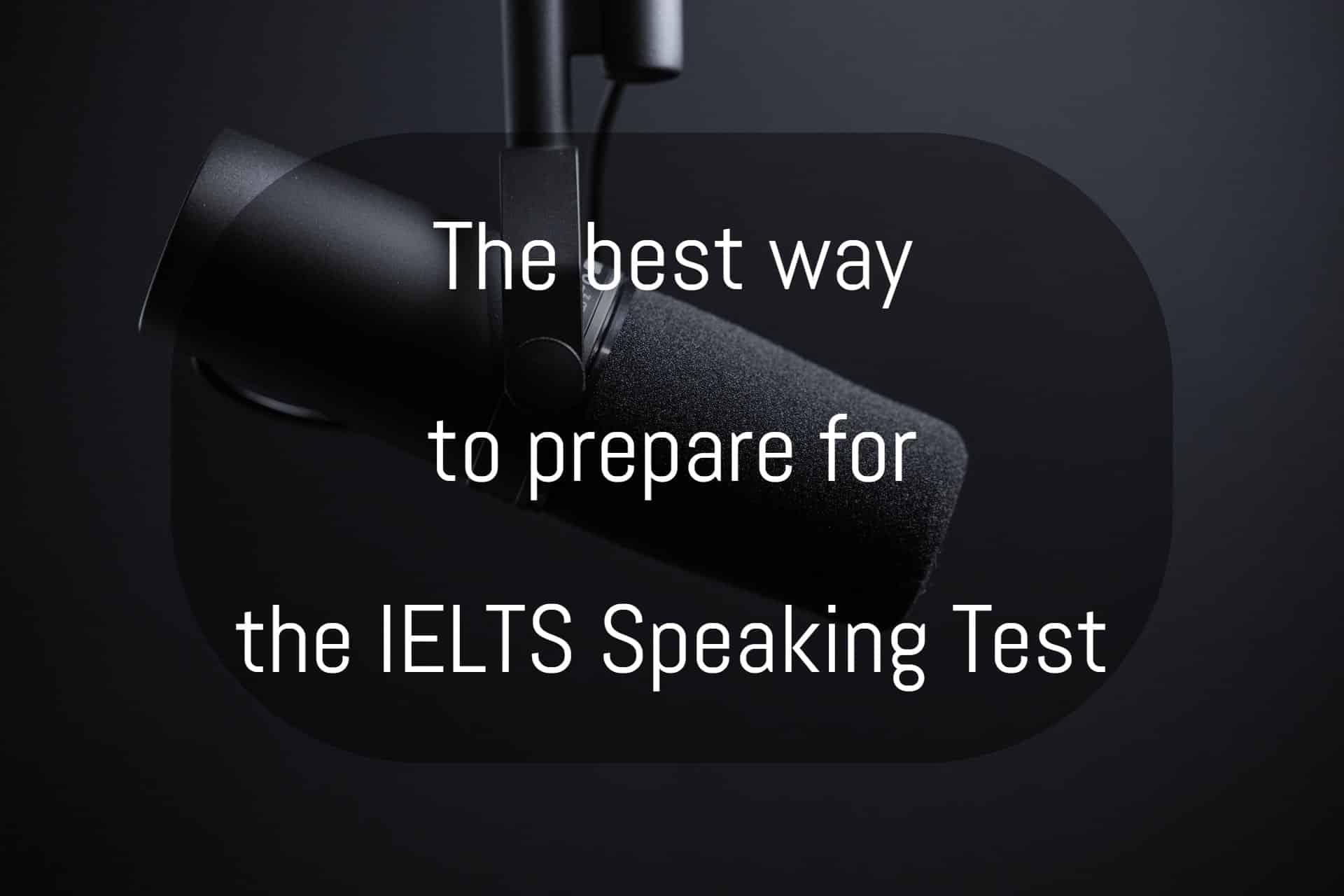One of the questions that IELTS test takers ask a lot is how they can prepare for the speaking test at home. Some students prefer taking courses, but those who want to study on their own can also improve their speaking skills through some activities.
Become a better language user first.
Learning about the format and structure of the test is essential to get higher band scores, but speaking fluently and flexibly is even more important. If you know all about the test but cannot produce a coherent speech, or if you pause a lot to think about grammar and vocabulary, you’re not going to get a good score in IELTS. Becoming a better language user will help you achieve higher band scores. You can read our article about how to practice speaking alone here.
Familiarize yourself with the common IELTS speaking topics.
You may have a good grasp on vocabulary and grammar, but if you can’t show your language skills when asked about unfamiliar topics, you’ll be stuck at lower levels. The best way to deal with the lack of ideas in the test is to learn about the common topics you may hear on your test day. Here are the most common topics in the speaking module:
- Habits and hobbies
- Education
- Environment, pollution, climate, and global warming
- family and relationships
- culture and culture shock
- Animals, pets, and zoos
- Technology and its effect on our lives
- Modern life vs. traditional life
- Celebrities, media, and fame
- Social problems
- Law and crime
- Space exploration
- Success and failure
- urban life vs. rural life
- The internet
- careers and jobs
- Food and diet. Example: Genetically modified food
- Energy
- Health and illnesses
- Art
- Globalization
- Personal life and experiences
- Sports
- Agriculture and farming
- Entertainment
- Money
- Transport
- Tourism and travel
- Happiness
- Generation gap
The best way to prepare yourself for the topics you’re not familiar with is to do research on them on the internet. Pick a topic and read as many articles about it as you can. You also need to take notes of the topic-specific words and collocations. Finally, talk about what you have searched for like you’re explaining it to someone who doesn’t know anything about the topic. This way, you’ll learn so many ideas about different topics, which you can use in the exam.
Activate your passive vocabulary.
We all know more vocabulary than we use when speaking English. The vocabulary items that you frequently use in your writing and speaking are called active vocabulary. The ones that you know but don’t use are called passive vocabulary. In order to score high in the exam, you need to activate these passive words through practice. Here are some ways you can use to activate your passive vocabulary:
- Read authentic English texts that are not written for learners, and watch English talk shows, news, and documentaries.
- Learn new words with their collocations and parts of speech, and read as many example sentences as you can.
- Use the words you learn to talk about your personal life and experiences. Personalization is the most important step in activating vocabulary items. Do this regularly until your brain makes strong connections with those words so that you don’t forget them.
- Learn new words, collocations, and idioms in context. In other words, you should try to learn new words through reading a text or watching a program. This way, you help your brain memorize them faster. If you just memorize a list of words and their meanings, you won’t be able to activate them.
Find a speaking partner.
A speaking partner will help you use the language for what it is for: communication. You can practice by discussing one of the common topics, or you can play the role of an examiner and test taker to get used to the exam conditions.
Do lots of practice tests and record your voice.
You need to do lots of practice tests. You can do this at home. The only materials you need are a sample test and a voice recording device like your smartphone.
Ask yourself the questions and answer them like you would in the exam. Do this under exam conditions and record the entire session. Your own voice may sound weird and funny at first, but it is very helpful in identifying your weaknesses. You can easily identify your fluency problems like hesitations. You can also hear your mistakes in grammar or pronunciation.
Get personalized feedback from an expert.
Finally, it’s also a good idea to get feedback from an expert to find the problems that you can’t on your own. This speeds up improving your speaking skills and prevents you from getting frustrated due to being stuck at a low level.
More guides:







